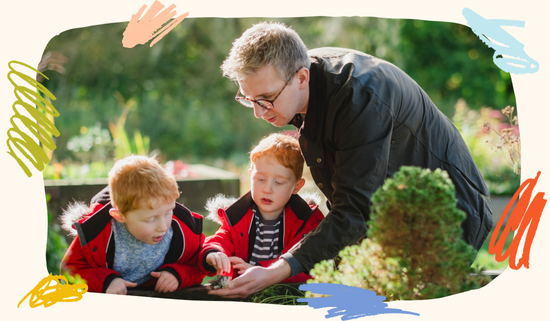How to become a foster carer?
1. Research
Undertaking your own research will help you to gain a good basic understanding of fostering and the process to becoming a foster carer. It’s useful that you know what fostering is, who the children are that are fostered, who the team around the child is, why a child is fostered, what foster carers do, the different types of foster care and who can foster.
Our FosterForGM.com website provides all the information you need to get a good overview of what fostering is all about. It provides details around the benefits of fostering for your local council including the financial support, on-going support, training and the support-network you will receive. It also provides additional information through blogs and real-life fostering stories.
If there is anything you need clarity on, or if you have any questions, please do not hesitate in contacting us 0300 303 0321, email us at enquire@fosterforgm.com or complete our online enquiry form.
2. Discuss
Fostering is a deeply rewarding experience that can have a life-changing impact on you and your loved ones. It is important that you openly discuss your motivations and reasons for becoming a foster carer.
Family members may feel uncertain about fostering or have concerns about the emotional and practical demands. If you have children, they may worry about sharing their space, time, or attention with a foster child.
Building a solid support network helps make the transition to fostering much easier, so your extended family and close friends will also play a role in supporting you throughout the fostering process too.
Before moving forward, it’s important that anyone that may be directly affected by your decision to foster is also interested in finding out more.
3. Enquire
Once you are ready to take the start your journey to becoming a foster carer, please get in touch with us via:
The Enquiry Form
Email at enquire@fosterforgm.com
Phone on 0300 303 0321
A committed and friendly member of our Foster for Greater Manchester team will contact you within one working day of your enquiry and will answer any further questions you may have about fostering. They will also explain and guide you through our step-by-step approach in your journey to becoming a foster carer.
4. Initial visit
When you are ready to progress further, a Foster for Greater Manchester recruitment officer and an experienced foster carer (Foster Care Ambassador) will carry out an initial visit at your home to discuss your interest in becoming a foster carer. They will gather preliminary information and provide further guidance about the fostering process. The visit also serves as an opportunity for you to ask questions.
5. Application
If both you and the Foster for Greater Manchester team are happy to proceed, you will be asked to complete an application form providing information on your education, employment, addresses and relationships. You will also need to consent for Disclosure and Barring Service (DBS) checks and medicals to be carried out. When the application is received a joint handover visit between the Foster for Greater Manchester team and the local council will be arranged.
6. Checks
Your local council will carry out a few checks with the police and probation service and NSPCC. They will also ask for character references.
7. Skills to Foster Training
You don’t need any specific qualifications before you begin your journey to fostering. The ‘Skills to Foster’ training course is designed to equip you with the necessary knowledge and skills to become a foster carer. We appreciate that fostering comes with its own set of complexities, and this training will help you navigate these challenges with confidence and resilience.
Additionally, the training offers a valuable opportunity to connect with other foster carer applicants, building a strong support network from the very beginning of your fostering journey. The Skills to Foster training must be completed prior to approval.
8. Assessment
Your local council's fostering team will assess your suitability to become a foster carer. The assessment covers various aspects, including your motivation to foster, parenting abilities, support networks, and understanding of the fostering role. You will be introduced to fostering social worker who will speak to you, your immediate family and other members of your household about you becoming a foster carer.
9. Panel
Following a successful assessment, your fostering social worker will make a recommendation for your approval to become a foster carer.
You will be invited to attend a fostering panel alongside your social worker. The panel members, who have relevant experience in fostering, will review the assessment report prior to the panel.
They will discuss your assessment, ask questions, and provide an informed recommendation regarding your approval. They will also specify the age range and number of children that you will be able to care for. This recommendation is presented to the Agency Decision Maker (ADM), who will review all information and make the final decision around your approval.
10. Decision
Following your approval as a foster carer, you will continue to have access to ongoing advice and guidance through your local council. You’ll also be invited to training and support groups, where you can connect with foster carers and truly feel part of our fostering community.

.webp)





